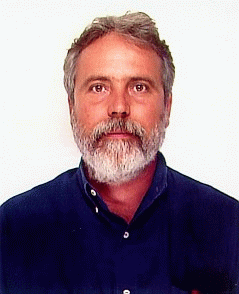
Program
| 08:00 – 10:00 | Registration |
| 10:00 – 11:00 | Opening
Session |
| 11:00 – 11:30 | Coffee
Break |
| 11:30 – 12:30 | CLEI
Invited Speech |
| 14:30 – 16:00 | Session
1: Management of Wireless Networks Chair: Nazim Agoulmine 1. Distributed Location of the Critical Nodes to Network Robustness based on Spectral Analysis Klaus Wehmuth, Artur Ziviani 2. A Strategy to Improve Sensing Accuracy of Energy Detection for Distributed Spectrum Management Systems Andre Meirelles, Kleber Cardoso, José Ferreira de Rezende 3. A Mobility Model for Opportunistic Routing Protocols Validation Matias Richart, Jorge Visca, Javier Baliosian, Eduardo Grampin 4. Multiple Linear Regression to Improve Prediction Accuracy in WSN Data Reduction Carlos Giovanni Nunes de Carvalho, Danielo Gomes, José De Souza |
| 16:00 – 16:30 | Coffee
Break |
| 16:30 – 18:00 | Session
2:
Management Applications Chair: José Marcos Nogueira 1. An IDE for NETCONF Management Applications Paulo Tavares, Pedro Gonçalves, José Oliveira 2. Universal Remote Boot and Administration Service Sebastian Schmelzer, Dirk von Suchodoletz, Daniel Weingaertner, Luis Carlos De Bona, Gerhard Schneider, Carlos Carvalho |
| 18:00 – 19:00 | Invited
Speech 1: Management towards Reducing Cloud Usage Costs Dr. Vladimir Tosic, NICTA |
| 19:00 – 20:00 | Cultural
Program |
Tuesday, October 11th
| 9:00 – 10:00 | Invited
Speech 2 Communication and Sensors Technologies Integration for Cost-Effective Ubiquitous Healthcare Provisioning Prof. Nazim Agoulmine, University of Evry Val d'Essonne |
| 10:00 – 10:30 | Coffee
Break |
| 10:30 – 12:00 | Session
3: Security Management Chair: Héctor Cancela 1. Content Filtering for SMS Systems Based on Bayesian Classifier and Word Grouping Dirceu Belem, Fatima Duarte-Figueiredo 2. Botnet Detection Using a Mashup-based Approach Carlos Raniery Paula dos Santos, Rafael Santos Bezerra, João Ceron, Liane Tarouco, Lisandro Zambenedetti Granville 3. Biologically Inspired Architecture for Security Management on Wireless Self-Organized Networks Michele Nogueira, Jenny Torres, Aldri dos Santos, Guy Pujolle 4. An Adaptive Security Management Model for Emergency Networks Thiago Oliveira, Sergio Oliveira, Jose-Marcos Nogueira, Daniel Fernandes Macedo |
| 12:00 – 13:00 | Invited
Speech 3 On the Design of the Future Internet Prof. Otto C.M.B. Duarte, Federal University of Rio de Janeiro |
| 14:30 – 16:00 | Session
4: Management of Virtual Infrastructures &
Services Chair: Carlos Westphall 1. An Architecture for Adaptation of Virtual Networks on Clouds Carlos Senna, Milton Soares, Luiz Fernando Bittencourt, Edmundo Madeira 2. Simulator Improvements to Validate the Green Cloud Computing Approach Jorge Werner, Guilherme Geronimo, Carlos Westphall, Fernando Koch, Rafael Freitas 3. A quality-aware approach for selecting context information from redundant context sources José Bringel, Nazim Agoulmine 4. Alloc TC-Sharing : A new Bandwidth Allocation model for DS-TE Networks. Rafael Reale, Walter da Costa, Joberto Martins |
| 16:00 – 16:30 | Coffee
Break |
| 16:30 – 17:30 | Panel
Moderator: José Marcos Nogueira Trends in Managing Virtual Infrastructures: from Networks to Clouds |
| 17:30 – 17:45 | Closing
Session |
| 18:30 – 20:00 | Cultural
Evening |
 |
Prof. Nazim Agoulmine (IEEE Senior Member) is a Full Professor at the University of Evry Val d’Essonne, France and head of of the LRSM group of the IBISC Computer Science Research Lab. He holds a Master and Phd degreesinomputer science from the University of Paris XI (France) and an Engineering diploma from the University of USTHB (Algeria). Since 1989, he has been involved in several large research projects on broadband wireless and fixed network management funded by the EU commission: Advance, Pemmon, Forms, ICM, Adanets, Seimonet, Sumo, Wellcom, Expeshare, Easycloud) and the French National Research Council CNRS (Cesame, Amarrage, Polymage, etc.). His current research interests are Ubiquitous Networks, Context Awareness, autonomic, NGN, Ad hoc and WSN, Multimedia Systems, etc. He has served and still serving in several technical programme committees of IEEE international conferences: MMNS, IM, NOMS App, LANOMS, ASNOMS, MWCN, LAACS, BCN, GIIS, etc. Nazim Agoulmine has served as the general co-TPC chair of IEEE/IFIP IM’2011, NATO ASIGE’2010, LANOMS’2009, BCN’2010/09/08/07/06, MMNS’2003 DANSM’2007, GIIS’2007, HPOV’2004 . Dr. Agoulmine has published more than 100 peer-reviewed papers in the areas of networking and multimedia systems. He is the co-author of three books on Network Management and Multimedia Systems. He was awarded two international patents and has been giving several invited/keynote/plenary presentations in several international conferences and workshops. Dr. Agoulmine is currently a secretary a member of the e-Health IEEE Committee. He is also the area editor of the International Journal on Computer Networks - COMNET, associate editor board of the international Journal of Computing Science and Engineering - JCSE and member of the editorial review board of the “International Journal of E-Health and Medical Communications - IJEHMC. He is the guest editor of the IEEE Communications Magazine Special Issue on “Communications in Ubiquitous Healthcare: Wireless Sensors, Networked Devices, Protocols and Solutions”. |
 |
Otto Carlos Muniz Bandeira Duarte (gta.ufrj.br/~otto) was born in Rio de Janeiro, Brazil, on October 23, 1953. He received the Eletronic Engineer degree and the M. Sc. degree in Electrical Engineering from Universidade Federal do Rio de Janeiro, Brazil, in 1976 and 1981,respectively, and the Dr. Ing. degree from ENST/Paris, France, in 1985. Since 1978 he is Professor at Universidade Federal do Rio de Janeiro. From January 1992 until June 1993 he has worked at MASI Laboratory in Paris 6 University. In 1995, he has spent three months at International Computer Science Institute (ICSI) associated to the University of California at Berkeley. In 1999, 2001, 2006, and 2011, he worked as invited professor at Paris 6 University. He is heading the computer network group (Grupo de Teleinformática e Automação - GTA). His major research interests are in virtualized networking, cloud computing, security, multicast, QoS garantees, and mobile communications. |